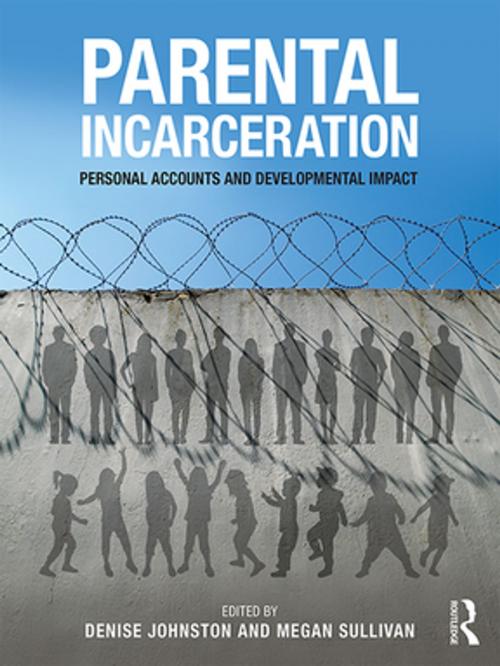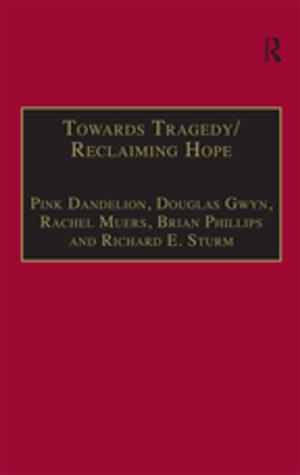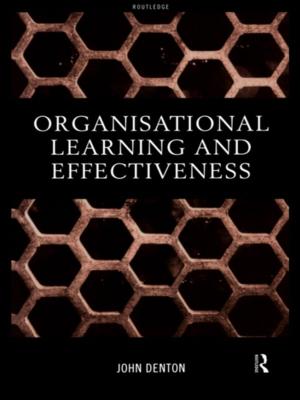Parental Incarceration
Personal Accounts and Developmental Impact
Nonfiction, Social & Cultural Studies, Social Science, Crimes & Criminals, Criminology| Author: | ISBN: | 9781317293613 | |
| Publisher: | Taylor and Francis | Publication: | March 10, 2016 |
| Imprint: | Routledge | Language: | English |
| Author: | |
| ISBN: | 9781317293613 |
| Publisher: | Taylor and Francis |
| Publication: | March 10, 2016 |
| Imprint: | Routledge |
| Language: | English |
Parental Incarceration makes available personal stories by adults who have had the childhood experience of parental incarceration. These stories help readers better understand the complex circumstances that influence these children’s health and development, as well as their high risk for intergenerational crime and incarceration. Denise Johnston examines her own children’s experience of her incarceration within the context of what the research and her 30 years of practice with prisoners and their children has taught her, arguing that it is imperative to attempt to understand parental incarceration within a developmental framework. Megan Sullivan, a scholar in the Humanities, examines the effects of her father’s incarceration on her family, and underscores the importance of the reentry process for families.
The number of arrested, jailed, and imprisoned persons in the United States has increased since 1960, most dramatically between 1985 and 2000. As the majority of these incarcerated persons are parents, the number of minor children with an incarcerated parent has increased alongside, peaking at an estimated 2.9 million in 2006. The impact of the experience of parental incarceration has garnered attention by researchers, but to date attention has been focused on the period when parents are actually in jail or prison. This work goes beyond that to examine the developmental impact of children’s experiences that extend long beyond that timeframe. A valuable resource for students in corrections, human services, social work, counseling, and related courses, as well as practitioners, program/agency administrators, policymakers, advocates, and others involved with families of the incarcerated, this book is testimony that the consequences of mass incarceration reach far beyond just the offender.
Parental Incarceration makes available personal stories by adults who have had the childhood experience of parental incarceration. These stories help readers better understand the complex circumstances that influence these children’s health and development, as well as their high risk for intergenerational crime and incarceration. Denise Johnston examines her own children’s experience of her incarceration within the context of what the research and her 30 years of practice with prisoners and their children has taught her, arguing that it is imperative to attempt to understand parental incarceration within a developmental framework. Megan Sullivan, a scholar in the Humanities, examines the effects of her father’s incarceration on her family, and underscores the importance of the reentry process for families.
The number of arrested, jailed, and imprisoned persons in the United States has increased since 1960, most dramatically between 1985 and 2000. As the majority of these incarcerated persons are parents, the number of minor children with an incarcerated parent has increased alongside, peaking at an estimated 2.9 million in 2006. The impact of the experience of parental incarceration has garnered attention by researchers, but to date attention has been focused on the period when parents are actually in jail or prison. This work goes beyond that to examine the developmental impact of children’s experiences that extend long beyond that timeframe. A valuable resource for students in corrections, human services, social work, counseling, and related courses, as well as practitioners, program/agency administrators, policymakers, advocates, and others involved with families of the incarcerated, this book is testimony that the consequences of mass incarceration reach far beyond just the offender.















